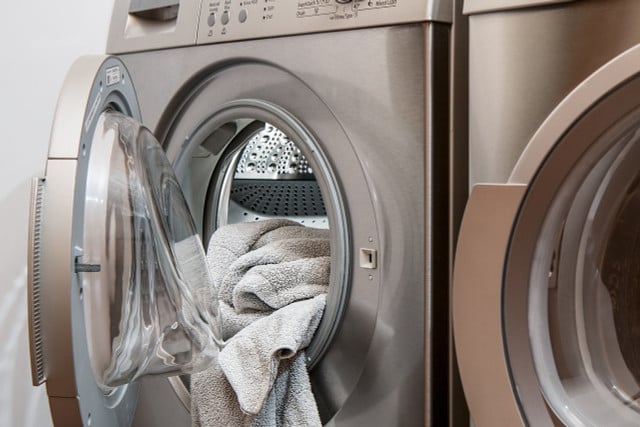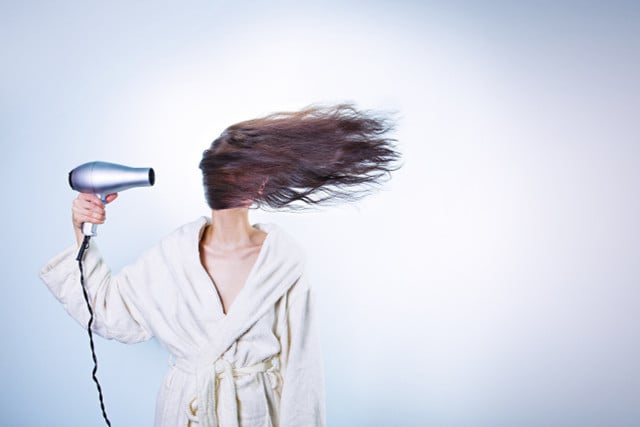
Pimples on the scalp are annoying, but mostly harmless. This article explains why they occur and how you can get rid of them quickly.
Pimples are particularly common during puberty and are related to the hormonal changes that occur during this time. The hormonal imbalance affects the activity of the sebaceous glands and causes the pores of the skin to become clogged.
But pimples can still appear in adulthood. They are often individual pimples on the face, back or scalp. In fact, pimples appear just as often on the head as on other parts of the body. Because they are hidden by hair, we notice them much less often.
Often, we only notice pimples on the scalp when we get caught on the raised areas while brushing. This feels unpleasant, even though the pimples are usually harmless.
Causes of pimples on the scalp

(Photo: CC0 / Pixabay / JESHOOTS-com)
The formation of pimples on the scalp is often caused by clogged pores. These occur when dead skin cells or residues from hair products close the small openings and the sebum can no longer drain away. If you wash your hair irregularly or do not rinse it thoroughly, the pores can become clogged.
Other physical causes can also cause pimples on the scalp. Hormonal fluctuations in particular affect the scalp’s sebum production. Certain foods can also encourage the formation of pimples. However, there is little scientific evidence for this so far. Carbohydrates, especially sugar, seem to increase the risk of pimples. Alcohol, nicotine and stress are also said to be able to cause pimples and skin blemishes.
Pimples on the scalp caused by ingredients

(Photo: CC0 / Pixabay / stevepb)
Sometimes the skin reacts sensitively to certain ingredients in hair care or styling products. The scalp absorbs the substances from the products. This can irritate the skin’s natural protective barrier and cause pimples to form.
Detergents can also irritate the scalp and cause pimples. Your head comes into contact with them mainly through pillowcases and hats. If your skin is sensitive, you should take a closer look at the ingredients in your washing and care products. Apps like Codecheck explain which substances often have an irritating effect or cause a detergent allergy.
In the best list of organic detergents you will find detergents that do not contain any synthetic fragrances, dyes or preservatives. This reduces the risk of causing an allergic reaction.
You can easily tell for yourself whether it is a mild skin irritation or an allergic reaction. Normally, pimples appear sporadically and heal within a few days. If you suddenly have an increase in skin imperfections on your scalp, it may be an intolerance. If you have allergies, you will feel severe itching. The pimples may also ooze. In this case, you should have them examined by a dermatologist.
Help against pimples: protect your scalp

(Photo: CC0 / Pixabay / RyanMcGuire)
There are various ways to get rid of pimples on your scalp. Particularly effective home remedies are chamomile and tea tree oil:
-
Chamomile rinse for pimples: Chamomile relieves itching and soothes the scalp. Pour boiling water over three teaspoons of loose chamomile flowers. After about ten minutes, strain the flowers. Allow the tea to cool to a lukewarm temperature. Then pour the rinse over your scalp and massage the chamomile tea in thoroughly. Do not wash the rinse out.
-
Tea tree oil for pimples: Tea tree oil has a disinfectant effect. It also dries out the pimples and thus supports the healing process. Put a drop of the oil on a cloth and carefully dab it onto the pimple on the scalp. Note: The oil is very intense. If you are a little sensitive, you can dilute it with two drops of water.
In general, you should protect your scalp as much as possible to avoid putting further strain on it. This includes using heat sparingly. If possible, avoid blow-drying your hair, straightening it, or curling it with a curling iron. You should also avoid using styling products if you want to get rid of the pimples on your scalp.
Pimples on the scalp: How to get rid of them permanently

(Photo: CC0 / Pixabay / StockSnap)
To get rid of pimples on your scalp permanently, you can implement these simple tips:
-
Wash your hair regularly and gently: Wash your hair regularly, but not every day. Make sure that the shampoo is mild and unscented to protect the scalp. Use natural products (for example from the Avocadostore). This way you can also be sure that they are free of microplastics. Take your time to massage the hair care product well into the scalp and then rinse it out thoroughly.
-
Wash out sweat and dirt: Wash your hair after exercise or if you have come into contact with a lot of dirt. Sweat or dirt particles can also contribute to clogging the pores and thus promote pimples.
-
Comb your hair: Brush your hair thoroughly. Make sure that the bristles reach your scalp. This will remove dead skin cells from your head and stimulate blood circulation.
-
Change products: If you have been suffering from pimples on your scalp since you started using a certain product, you should change it. The best thing to do is to make your own mild detergent.
-
Avoid ready-made products: Make sure that you eat a balanced, wholesome and healthy diet. Avoid ready-made products, as these often contain a lot of sugar and additives. Instead, choose local and seasonal foods. You can find a good overview here: Think Global, Eat Local! Seasonal calendar for vegetables and fruit.
More tips to get rid of pimples
With the right care and suitable products, you can get rid of pimples on your scalp. But the following tips can also help:
-
Reduce stress: If stress is causing pimples on your scalp, integrate breaks and relaxation techniques into your daily routine.
-
Hands out of your hair: Do you often run your hands through your hair, consciously or unconsciously? Try to avoid doing this, as your hands leave dirt and germs on your scalp.
-
See a dermatologist: A dermatologist can also advise you on how to best control the pimples. He or she can also help you if the pimples are caused by hormonal fluctuations.
Read more on Techzle\.com:
- Impure skin: The best home remedies for pimples
- Dry scalp: These home remedies help
- Coconut oil for hair: tips for beautiful and healthy hair
Edited by Lena Kirchner
** marked with ** or orange underlined Links to sources are sometimes affiliate links: If you buy here, you are actively supporting Techzle\.com, because we then receive a small part of the sales proceeds. More information.